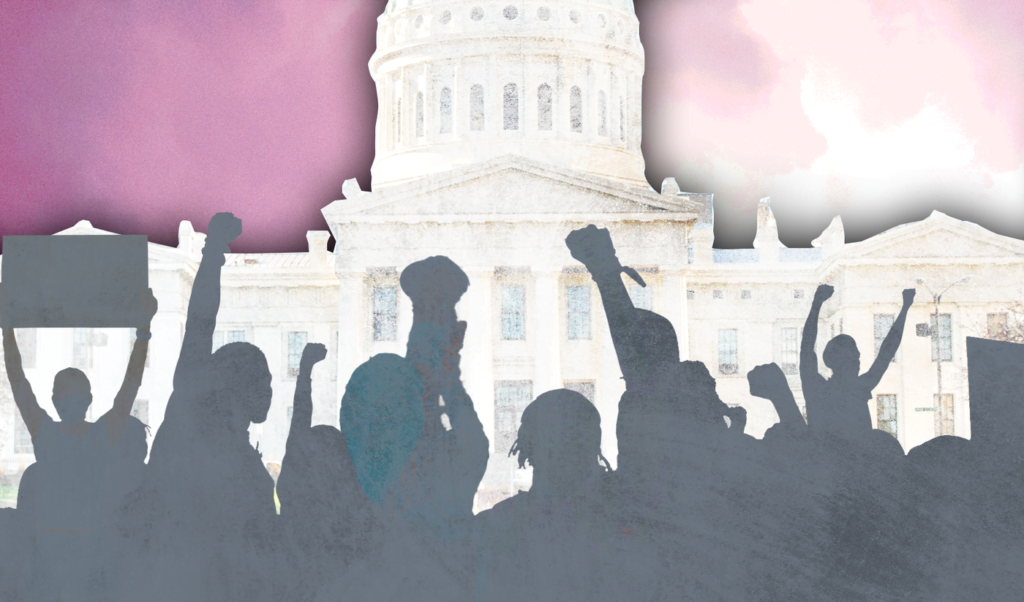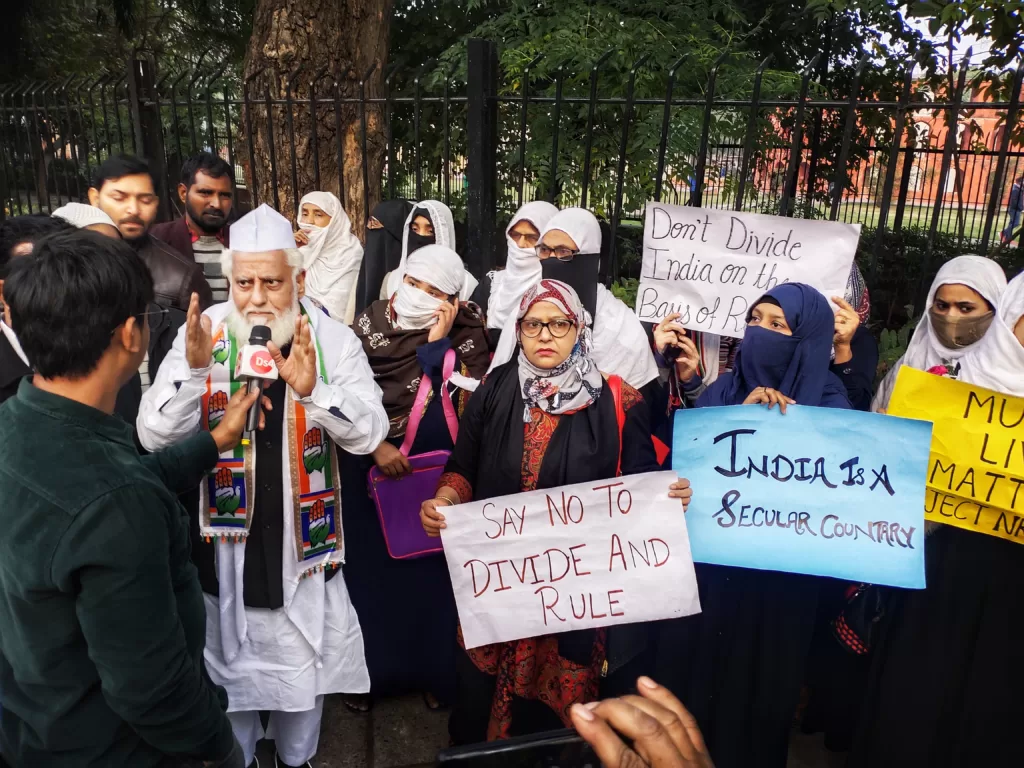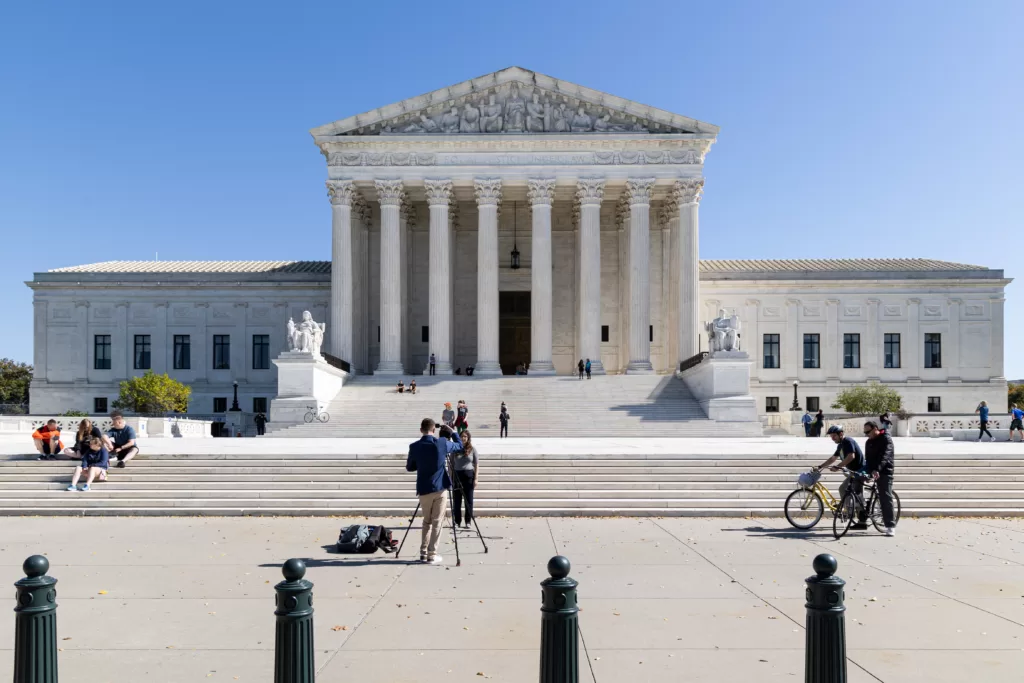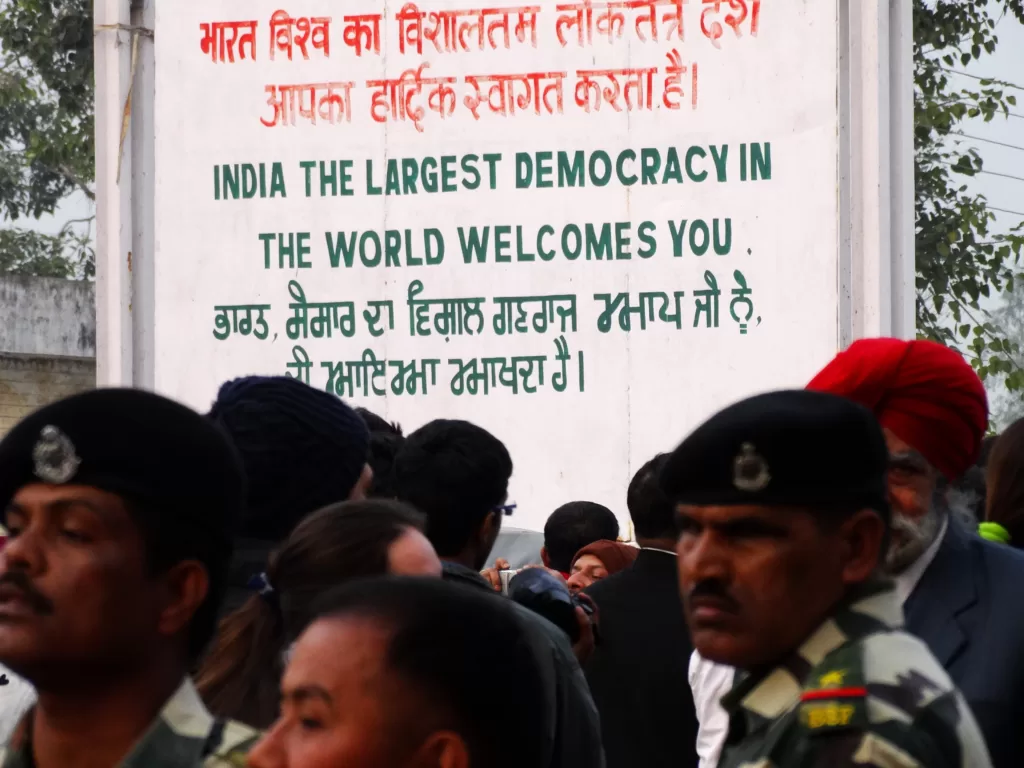Australians might think their right to march in the streets is constitutionally guaranteed, but it isn't.
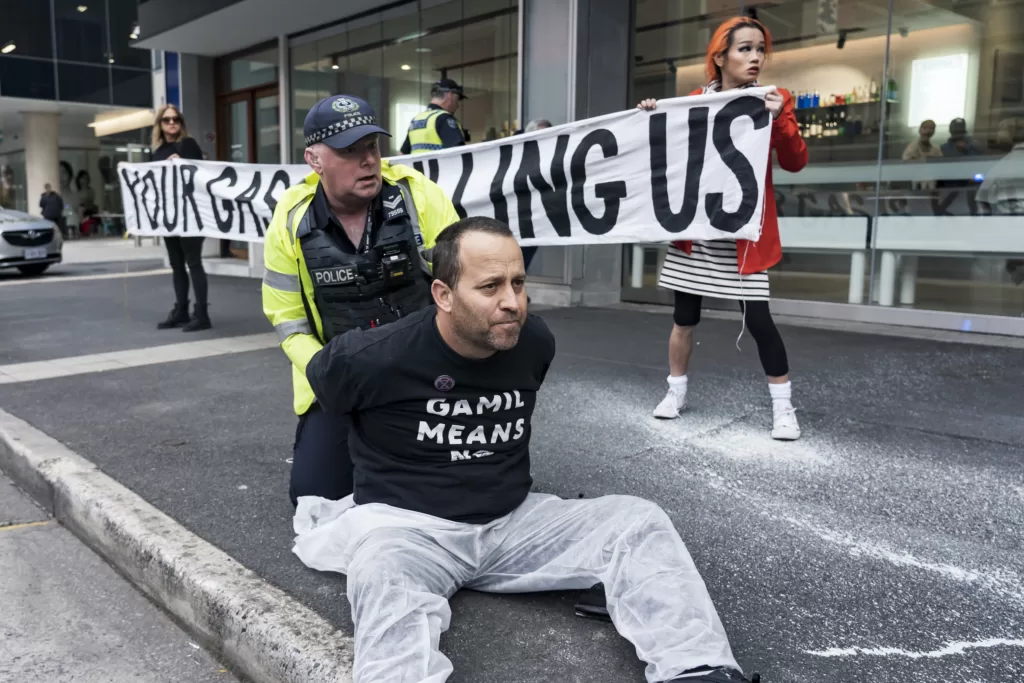 Extinction Rebellion protesters target the headquarters of Santos, in Adelaide. Many assume the right to protest is protected by Australian law, but no specific legal protections for the right exist. : Matt Hrkac via Flickr (https://www.flickr.com/photos/matthrkac/52919862300/in/photostream/) CCBY2.0
Extinction Rebellion protesters target the headquarters of Santos, in Adelaide. Many assume the right to protest is protected by Australian law, but no specific legal protections for the right exist. : Matt Hrkac via Flickr (https://www.flickr.com/photos/matthrkac/52919862300/in/photostream/) CCBY2.0
Australians might think their right to march in the streets is constitutionally guaranteed, but it isn’t.
Modern democracies are under pressure.
Conventional approaches to politics, governance and representation are being rejected by groups and individuals who feel their voices are not being heard. People are taking to the streets or adopting other ways to protest in response to government decisions.
The right to protest, or more specifically, the right to peaceful assembly is protected under international law and supported by other key democratic freedoms, including freedom of expression and association.
But at a domestic level, legal protection for the ‘right to protest’ depends on two important factors: whether a country’s constitution places limits on making protest illegal and the type of powers given to authorities tasked with enforcing anti-protest laws.
It is easy to think of countries where both of these factors are missing.
In Myanmar, the military junta has arrested more than 16,000 pro-democracy supporters, and arbitrarily changed laws, including bringing police under armed forces control.
There are effectively no limits on the scope of criminal law and police must use their powers to uphold the authoritarian regime.
In other places, such as Indonesia, the right to assembly, association and expression of opinion is explicitly included in the constitution, but protesters remain subject to significant risk of prosecution, discrimination and sometimes mistreatment at the hands of law enforcement.
This has played out with Indonesian efforts to regulate and control the provinces of Papua and West Papua, on the western half of the island of New Guinea, which provoked protests from West Papuan communities and separatist groups.
Indonesian authorities responded by using excessive force to break up protests and passed new criminal offences, including reinstating prison sentences for insulting the government and banning unauthorised demonstrations.
‘Implied’ freedom
In Australia, many assume the right to protest is protected by law, but in fact no specific legal protections for the right exist.
This is because, unlike almost every other democracy in the region, Australia does not have a Bill of Rights.
The right to peaceful assembly is included in human rights legislation in the states of Victoria, Queensland and the Australian Capital Territory and it is possible to conduct a lawful ‘public assembly‘ in some places, with the approval of police or other authorities.
However the ‘right to protest’ is not an enforceable individual right and can be removed or limited by other laws.
The only relevant constitutional protection is an implied freedom of political communication, a concept Australia’s High Court developed to protect the system of representative democracy set out in the Australian Constitution.
This implied freedom works in a different way to an individual human right. It puts limits on parliaments making laws that disproportionately restrict political communication (such as laws banning political advertising) but does not require parliaments or governments to protect an individual’s right to protest or freedom of speech in any way.
This means that state and territory governments can respond harshly, and often very quickly, to new forms of protest that challenge their political agenda or disrupt certain parts of the community.
We see this in climate activism, where protesters are adopting creative methods to voice dissent, including defacing artworks, planting stink bombs and interrupting conferences.
State governments are responding by imposing increasingly serious fines and jail terms.
For example, in May 2023, an activist from the group Extinction Rebellion dangled off a South Australian city bridge as part of a protest timed to coincide with a meeting of major oil and gas companies. Commuters along busy North Terrace in Adelaide were delayed by roadblocks set up by emergency services in response to the stunt.
The activist was charged with several offences, including obstructing a public place.
The next day, the South Australian government introduced changes that increased the fine for that offence from AUD$750 to AUD$50,000 (USD$485 to $32,395) or a three-month jail sentence. Protesters can also be charged with the costs of any police and other emergency services called to the scene.
These amendments were passed by the lower house by lunchtime, debated by the upper house within a week, and became law without any community consultation.
False assumptions
Laws imposing harsh penalties on protesters have also been passed in Queensland, New South Wales, Victoria and Tasmania.
Some believe these laws are an appropriate response to ‘extreme’ behaviour by activists. Others consider them overreach and a distraction from dealing with substantive policy issues, such as climate change.
But both camps regularly assume there is a legally protected right to protest in Australia that can be used as a basis for deciding whether the government’s response is fair in the circumstances.
In reality, no such legal right exists.
In this regard, Australia has more in common with its more authoritarian neighbours than it might like to admit.
It too must re-evaluate its approach to protecting human rights if it wants to create opportunities for inclusive civic participation and peaceful resolution of differences.
And in doing so, Australia must guard against the growing sense of distrust in democracy that is plaguing the region.
Dr Sarah Moulds is a Senior Lecturer in Law at the University of South Australia and co-founder of the Rights Resource Network SA. She is passionate about parliaments and connecting citizens and communities with lawmakers. In 2022 Dr Moulds was awarded a Churchill Fellowship to explore how to empower young people to engage effectively with Australian parliaments.
The researcher is the volunteer Director of the Rights Resource Network SA.
Originally published under Creative Commons by 360info™.


